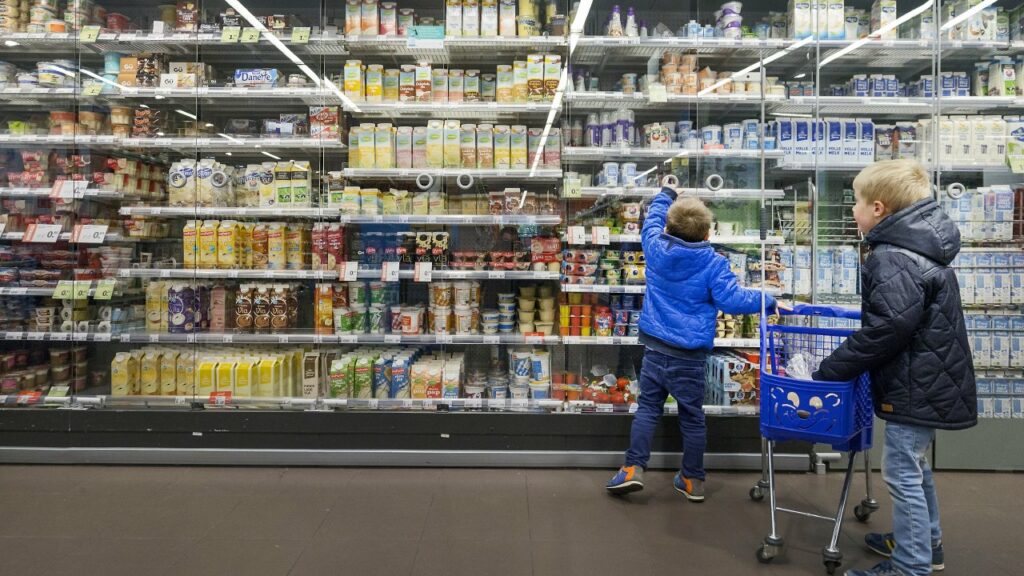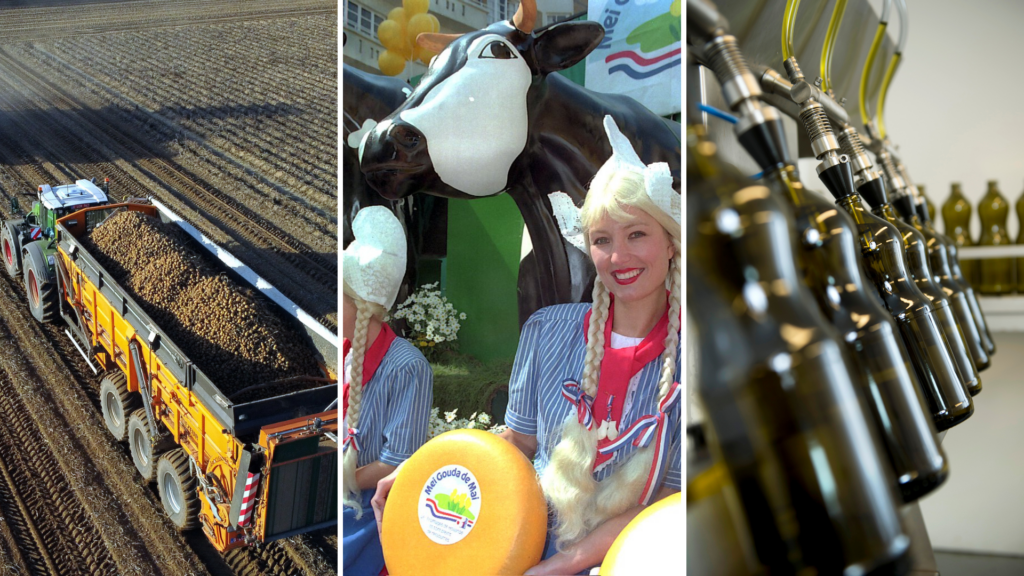Unpacking Belgium's irrational food pricing;
✔ Belgian food price inflation dropped to 2.31% in June, marking a 15-month steady decline
✔ Despite falling inflation, household necessities cost almost a third more than in 2022
✔ Dairy products' prices remain 29% higher than in 2022. Potatoes cost 49% more.
Food inflation is falling but is food getting cheaper? Belgian supermarket prices stay historically high

Price inflation in Belgian supermarkets fell again in June, continuing a steady decline recorded over the past year. But consumer organisation Test Achats stresses that prices for household necessities are still almost a third higher than in 2022.
For the past three years, Test Achats has measured food price inflation by tracking the prices of 3,000 basic products across seven of Belgium's main supermarkets (Albert Heijn, Carrefour, Colruyt, Cora, Delhaize, Aldi and Lidl).
The organisation has confirmed that food inflation fell to 2.31% in June, continuing a steady decline over the 15 months since April 2023. But it notes that food prices are still 27% higher than in January 2022 – when inflation first climbed above 2%.
By September 2022, inflation in Belgium reached the highest level seen since 1975 as global markets grappled with a cost of living crisis brought on by post-pandemic supply chain issues, increased demand, and the energy crisis triggered by Russia's invasion of Ukraine.
Looking at specific food products, particularly those produced directly by farmers, Test Achats highlighted that the price of dairy products is still 29% higher than in 2022.
While dairy prices on wholesale markets have fallen by an average of 20% since June 2022, semi-skimmed milk products are still 10% more expensive (on average); gouda cheese costs on average 27% more.
Meanwhile potatoes are now 49% more expensive than in January 2022. Importantly, Test Achats noted that the price increases do not appear to be benefitting farmers. "It is fundamental that our supervisory authorities ensure the proper functioning of the market, which must benefit both farmers and consumers,” said Julie Frère, spokesperson for Test Achats.

The price hikes hit consumers in the wallet. But it rarely gets a better deal for Belgian farmers, Test Achats warns. Credit: Belga
Olive oil and pet food – luxury items?
The largest monthly price increases recorded in supermarkets in June were for pet food (+9%), soft drinks (+6%) and groceries (+4%).
Products that have become especially costly are olive oil (+27%), gray shrimp (+18%) and potatoes (+14%). Between May and June, the categories that saw the largest price drops were stationery products and household paper (-3%), bread (-1%) and fruit (0.6%).
Over the past year, the products that have seen the biggest decreases were baby wet wipes (-14%), lemons (-12%), conference pears (-10%), iceberg lettuce (-10%), semi-skimmed milk (-6%) and spaghetti (-6%).
Related News
- 'Not-so-fishy fish sticks': What is cheapflation and what to pay attention to
- Economic uncertainty has 'surged' in recent years, surpassing 2008 peak
- Highest inflation rate since August 2023: June inflation rises to 3.74%
Improving household purchasing power has been identified by Test Achats as a "central priority" for newly forming governments at both the Belgian and European level. It was a leading campaign issue in Belgium's recent national elections.
At the end of March, the organisation questioned Belgian consumers on their perception of the EU and what should be the priorities for the next European representatives. Among Belgian consumers, the key issue is increasing purchasing power: 83% of consumers believe the EU should focus on making medicine more affordable and 76% highlighted the need for a healthy and sustainable diet to be affordable.
"Consumers want to be able to access healthy and sustainable products at affordable prices. This is too often a challenge today. It is by responding to the concerns of citizens that we will avoid the rise in extreme (politics) that we see today” Frère stated.
